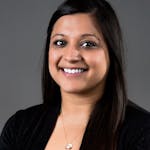No poverty. Zero hunger. Gender equality.
The Sustainable Development Goals (SDGs) offer a global roadmap for a better future for people and planet, but achieving such ambitious aims will require each and every one of us to go beyond the status quo. Thankfully, there are entrepreneurs, innovators and changemakers of all kinds turning local action into scalable progress.
At this month’s UN General Assembly in New York, 10 extraordinary solution makers from across the globe will share their efforts to realize the promise and potential of the SDGs during the 5th annual United Nations Solutions Summit, an initiative co-organized by the United Nations Foundation, the UN Local2030 Hub for Sustainability Solutions, shift7 and the Global Innovation Exchange.
Over the course of three days, these innovators will pitch their groundbreaking ideas — including “eco-bicycles,” 3D-printed prosthetics and climate smart farms– to an audience of policymakers, investors, and industry leaders, challenging the world to scale proven solutions to our greatest challenges.
Meet the solution makers who earned this year’s 10 coveted spots and learn how they’re transforming our future one idea at a time:
 Ghida Anani (LEBANON)
Ghida Anani (LEBANON)
ABAAD Jina Al-Dar: Fostering Protection by Reaching the Unreachable
Displacement and migration are often accompanied by a high prevalence of gender-based violence (GBV) among Syrian refugee communities in Lebanon. The problem is exacerbated by the scarcity of adequate holistic GBV services and the lack of information amongst refugee communities on available services. ABAAD – Resource Center for Gender Equality Founder & Director, Ghida Anani, launched the “Jina Al-Dar” Programme in 2016 to reach the unreachable with a bus visiting the most marginalized areas of Lebanon. With a specialized team and volunteers, the mobile bus provides services aiming to prevent and reduce all forms of violence against women and girls.
The overall goal of ‘’Jina Al-Dar’’ is to improve protection prospects for both refugees and host communities in Lebanon, not only by providing life-saving services but also by empowering rights-holders to exercise their rights, gain full agency, and fulfill their potential as equal members of society. Since 2016, the bus has reached over 20,000 women, men, and children. ABAAD aims to extend this work to Syria to help people directly through programs implemented by ABAAD, and indirectly by building the capacity of Syrian civil society organizations to effectively implement gender equality and GBV prevention & response programs.
Website: https://www.abaadmena.org | Twitter: @AbaadMENA @GhidaAnani
 Bryann Avendaño (Colombia)
Bryann Avendaño (Colombia)
Clubes de Ciencia Colombia: Transforming Scientific Mindsets of Children and Youth
Due to a lack of quality STEM education services, there is a shortage of scientists, IT professionals, engineers and mathematicians in Latin America. As part of the collective team of volunteer scientists who make up Clubes de Ciencia Colombia, Byrann Avendaño is working to expand access to high-quality science education for 9,000 children living in underprivileged rural communities in Colombia.
Clubes de Ciencia aims to inspire the next generation of scientists and innovators to be agents of change in their communities, close the gender gap in STEM, and provide children not only with STEM education but also social-emotional skills. Their methodology is hands-on, using project-based learning, bringing young people in touch with scientists to experience what science really is. They aim for the transformation of countries using science, technology, and innovation, cultivating and mentoring the next generation of scientists of the region. Clubes de Ciencia grew from 15 clubs in 2015 to 88 clubs in 2018, and built alliances with +300 partner organizations, reaching more than 6,500 children in Colombia alone. Clubes de Ciencia aims to grow to 200 clubs by 2020, and serve as ambassadors of this Latin American initiative by Clubs International to expand to Argentina, Ecuador, Chile,
Uruguay, Guatemala, Honduras, and El Salvador.
Website: http://www.clubesdeciencia.co/ | Twitter: @CdeC_Col
 Chelsea Chee (Malaysia)
Chelsea Chee (Malaysia)
MAEKO: Tackling Food Waste Through Innovative Aerobic Composting
An estimated 1.3 billion tons of food is wasted globally each year. In Malaysia, food waste is exacerbating pollution and the costs of handling and disposal are high. As part of her quest to create a paradigm shift for responsible food waste management, Chelsea Chee co-founded MAEKO in 2011. MAEKO’s food waste composting machines are engineered to divert resources from landfills by composting food waste at the source, resulting in a reduction of 66% greenhouse gas emissions.
Using microbial aerobic compression composting technology with a built-in aerobic filtration system, MAEKO machines convert food waste into bio-organic compost within 24 hours which can then be used to enrich the soil. As a result, MAEKO helps reduce high haulage costs, methane gas and GHG emissions, and foul air pollution. Their technology is scalable and flexible, able to be deployed as decentralized units located at high waste generating sites like hotels, schools, factories, and arenas. To date, MAEKO has successfully converted more than 4 million kilograms of food waste into compost. MAEKO is currently expanding to Indonesia with the goal of diverting food waste from landfills at a rate of 52 tons per day by 2022.
Website: http://www.maeko.com.my/ | Instagram: @maeko.asia
 Bernice Dapaah (Ghana)
Bernice Dapaah (Ghana)
Ghana Bamboo Bikes Initiative: Empowering Young Rural Women to Produce Sustainable Bicycles
At Ghana Bamboo Bikes Initiative (GBBI), Bernice Dapaah trains rural youth — a majority of whom are women — to build EcoRide bicycles, with frames made almost entirely out of bamboo and sisal fibers. Because bamboo has a higher compressive strength than steel, the EcoRide bamboo frame is lighter and stronger than steel bicycle alternatives. Bamboo is also fast-growing and releases as much as 30% more oxygen than the equivalent mass of other plants.
GBBI is able to price its bicycles 40% lower than most competitors and plants 10 bamboo trees for every one bamboo tree that is cut down. GBBI empowers communities by donating bicycles to students in rural communities to help them get to school. This unique approach provides a sustainable, healthy, and affordable transportation solution, and also allows for the advancement of the community.
Website: http://ghanabamboobikes.org | Twitter: @GhanaBambooBike
 Mohamed Dhaouafi (Tunisia)
Mohamed Dhaouafi (Tunisia)
CURE: 3D-Printed Bionic and Customized Hands for Amputee Children
More than 30 million persons worldwide are upper-limb amputees, 35% of whom are children. Only 5% of people who need upper-limb prosthetics can access them, because of a high price tag that can reach $100,000. Compelled to address this challenge, Mohamed Dhaouafi founded CURE to give children a prosthetic device, and the encouragement to overcome their fears and inspire the world with their positive differences.
The team at CURE believes that “your disability is your superpower” and provides children with 3D-printed bionic hands that can be personalized, are controlled by muscles and don’t require surgery. The prosthetic hands are also recyclable so children can have another custom 3D-printed as they grow without being obliged to buy a whole new one. CURE is also developing a solution for physical therapy using virtual reality and gamification, allowing children to play while going through rehabilitation and training, and while having the opportunity to virtually customize their bionic hand. CURE’s approach is holistic — providing technological, social and psychological assistance — in support of inspiring children and youth in need of upper-limb prosthetics to realize their potential and their dreams.
Website: https://dhaouafimed.wixsite.com/curetunisie | Twitter: @DhaouafiMohamed
 Dennis McClung (USA and Trinidad & Tobago)
Dennis McClung (USA and Trinidad & Tobago)
Garden Pool Climate Smart Farms: Accelerating Climate Resiliency and Fostering Food Security
Communities around the world — especially islands — are being devastated by the impacts of climate change, including dwindling resources, flooding, soil erosion, saltwater intrusion, and limited access to nutritious food. Dennis McClung founded Garden Pool to offer a solution to these complex challenges and address the agricultural knowledge gap across generations, with a focus on rural communities.
The Climate Smart Farm is a customizable, multi-solution, ecosystem-based, closed-loop, food-energy-water system with the ability to maximize community resilience and resource efficiency on a global scale. The recycling of nutrient water in a soilless greenhouse with a vertical layout allows for automatic irrigation and no weeding. This ecosystem recycles harvested rainwater in ponds with fish and a blend of algae and pond plants. Nutrient enriched water is cycled through the areas that the crops are grown and returned back to the pond. Each CSF can be built using recycled local materials, and community members are trained to maintain and replicate the system. Garden Pool’s scalable, modular system contributes to the global shift to sustainable and resilient agricultural practices, and are particularly helpful in resource-constrained communities.
Website: https://gardenpool.org/ | Twitter: @GardenPool
 Reekelitsoe Molapo (Lesotho)
Reekelitsoe Molapo (Lesotho)
Conservation Music: Confronting Environmental Collapse through the Power of Music
Millions of people around the world struggle to preserve their natural ecosystems in the face of climate change and environmental degradation. Reekelitsoe Molapo and her team at Conservation Music have been breaking down environmental education language and information barriers across Africa one song at a time. By collaborating with local musicians in local styles and languages to produce eco-minded songs and music videos, Conservation Music is opening up a space for education and dialogue in local communities to enable climate and environmental education and action.
Conservation Music equips performing artists with the tools they need to confidently reach their listeners, producing world-class song and music video productions that local youth engage with and distribute to communities and schools across their countries to integrate into workshops and curricula. To date, they’ve recorded with 113 performers across 8 countries to produce 24 songs and music videos while engaging with over 10,000 individuals in communities and reaching millions on the air and online.
Website: http://www.conservationmusic.org/ | Twitter: @music4earth
 Diwura Oladepo (Nigeria)
Diwura Oladepo (Nigeria)
Women Techsters: Teaching Women Across Africa to Code
With the fourth industrial revolution in view, 90% of the jobs in the next 10 years will require technology skills and knowledge. Women are under-represented as technology developers and advanced users, and if this trend continues they will be at a significant disadvantage. At Women Techsters, an initiative of Tech4Dev, Diwura Oladepo strategically fosters inclusion and minimizes the gap between men and women in the technology space while creating an enabling environment for entrepreneurship, employability, and access to decent jobs.
Women Techsters will scale an existing initiative known as the Nigerian Women Techsters Initiative, which has been deployed across 12 states within Nigeria and has recorded success in training 2,400 women with digital skills. Classes are focused on five learning tracks: web and mobile development, games development, embedded systems, data science, and artificial intelligence. Women Techsters has an immediate goal of empowering 5 million women between the ages of 16-40 across Africa by 2030 with the skills they need for the workforce of the future, ultimately contributing to the economic growth of the continent.
Website: https://tech4dev.com/programs/women-techsters | Twitter: @Tech4DevHQ
 Carlos Pereira (Brazil)
Carlos Pereira (Brazil)
Livox: Alternative Communication Software for the 21st Century
The right to communicate is a basic human right and it is the means by which all other rights are realized. Many people with disabilities experience complex communication challenges which can lead to poor school and post-school outcomes, increased risk of abuse and neglect, and challenging behaviors.
Carlos Pereira is the father of a twelve-year-old girl that has cerebral palsy due to a medical mistake. Since his daughter’s impairment, empowering people with disabilities became a passion for him, leading him to found Livox. Livox software enables non-verbal people to communicate using a tablet. The interaction with the software depends on each user’s different abilities. So, a person with a severe motor impairment may use their eyes to interact with the software, while a person with a minor motor disability may count on the Livox algorithm that corrects imperfect touches. To date, Livox is benefiting over 25,000 people with disabilities in Brazil, USA, Saudi Arabia, Egypt, Djibouti, Sudan, Australia, Portugal, Angola, and Peru, with plans to expand to several other English-speaking countries.
Website: http://www.livox.com.br/ | Twitter: @livoxtablet
 Ian Tansley (United Kingdom)
Ian Tansley (United Kingdom)
The Sure Chill Company: Protecting Vaccines. Saving Lives
To be effective, vaccines and medicines need to be kept between 2-8˚C at all times; the difference of a few degrees in storage temperature can mean the difference between life and death. In many parts of the world, keeping medicines cool is often a significant challenge as conventional refrigeration technologies are unsuited to unreliable grid power or off-grid alternatives.
Ian Tansley co-founded The Sure Chill Company to fill this gap using two outstanding properties of water. When frozen, water has the ability to store large amounts of energy in a small space and, unlike any kind of battery, it can the “charged” and discharged an infinite number of times. Using ice alone risks freezing the items being stored, a particular problem with storing vaccines. However, water has unusual density characteristics and is at its heaviest at 4C, allowing ice to float. Sure Chill refrigeration units produce a self-regulating system that uses natural convection to deliver a steady temperature of 4C and allows for the amount of ice to be modified. The fridge can continue to operate without power from a few days to a few weeks. There are currently thousands of Sure Chill devices deployed in 50 countries across the world, and Sure Chill is now seeking to provide its technology in communities that are off-grid or have weak grids across Africa and Asia.
Website: http://www.surechill.com/ | Twitter: @Sure_Chill
Follow our updates from this year’s UN General Assembly via the UN Foundation’s Twitter, Facebook, and Instagram.



 View All Blog Posts
View All Blog Posts

